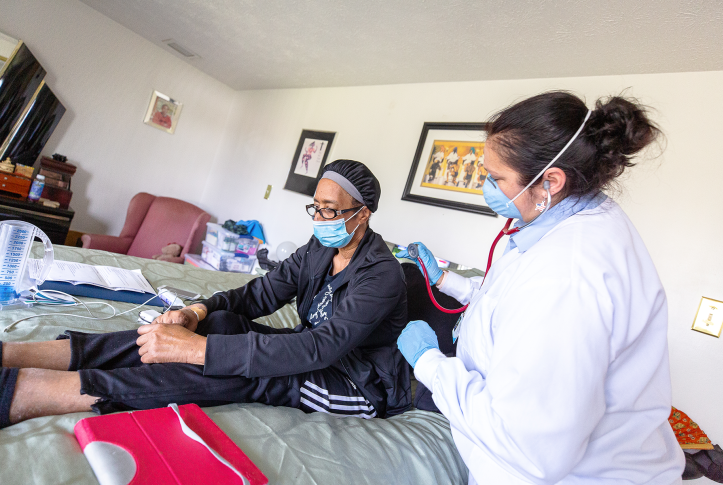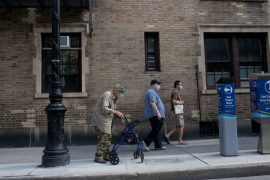Policymakers are grappling with how to increase access to home and community-based care and keep people out of skilled nursing facilities or hospitals, but they often overlook Medicare as a source of funding.
The Medicare home health benefit provides coverage for services that contribute to health, safety, and quality of life for beneficiaries and their families. In theory, coverage is available for people with both acute and chronic conditions and includes services to improve, maintain, or slow health declines. Such coverage is available even if services are expected to continue over a long period. However, changes in Medicare’s payment systems, quality measures, and audits designed to limit fraud have led to misunderstandings about what’s actually covered by law. This has caused some home health agencies and other providers to curtail their services out of fear they will be audited or won’t be properly reimbursed — limiting beneficiaries’ access to care.
This has had a particularly harmful impact on individuals living with long-term and debilitating conditions, who often face significant challenges in accessing care. A report by the Bipartisan Policy Center explores policy options to restore or clarify eligibility and services to ensure beneficiaries can access needed care.
Home Health Benefit Widely Misunderstood
Medicare rules state that if a beneficiary is considered homebound (not bedbound or unable to leave the home altogether) and requires skilled nursing, physical therapy, or speech language pathology services, he or she also can qualify for “dependent services,” including home health aides. Medicare law authorizes up to 28 to 35 hours per week of home health aide and nursing services combined, as well as therapies and medical social services. If a person continues to meet these criteria, there is no limit to the duration of services. In other words, contrary to what people are often told by providers, Medicare Advantage plans, 1-800-MEDICARE, and even the Centers for Medicare and Medicaid Services (CMS), home health coverage is not just a short-term benefit to help people recover from an acute event.
The Center for Medicare Advocacy hears regularly from people who meet Medicare coverage criteria but are unable to access home health benefits or denied the appropriate amount of care. The legal standards that define who can obtain coverage and what services are available are often narrowly construed and misunderstood by providers and Medicare adjudicators.1 This is increasingly true for home health aide services, although help with activities of daily living is often what older and disabled people need to remain healthy and safe at home.
Medicare Payment System and Other Policies Create Obstacles to Care
Misunderstanding about the scope and duration of services available under the home health benefit is driven and reinforced by Medicare payment policies. For example, the most recent Medicare payment model, effective in 2020, called the Patient-Driven Groupings Model (PDGM), changed home health agencies’ financial incentives and disincentives to admit or continue care for Medicare beneficiaries. For instance, under the PDGM, payments are higher for beneficiaries who are admitted after an inpatient stay (i.e., in a hospital or skilled nursing facility) and lower for those admitted from home. Further, the PDGM’s financial incentives include higher payment rates for the first 30 days of home care and declining payments after the first 60 days.
Similarly, the Home Health Value-Based Purchasing (HHVBP) Model, which will be expanded nationwide in 2023, increases or decreases payment to home health agencies based on their performance on measures intended to promote higher-quality care. In practice, however, this payment model rewards health improvement and may incentivize providers to avoid serving people with ongoing, debilitating, and chronic conditions who benefit from services but may not improve or improve quickly.
Changes Needed to Improve Access to Medicare Home Health Care
CMS could take several steps to restore beneficiaries’ access to the full scope of home health services under Medicare. An easy first step would be for CMS to launch a widespread educational campaign for providers, prescribers, contractors, adjudicators, and beneficiaries that explains the scope of services and qualifying criteria. Doing so would enhance knowledge about Medicare’s home care benefit and promote the shared goal of increasing beneficiaries’ access to community- and home-based care.





